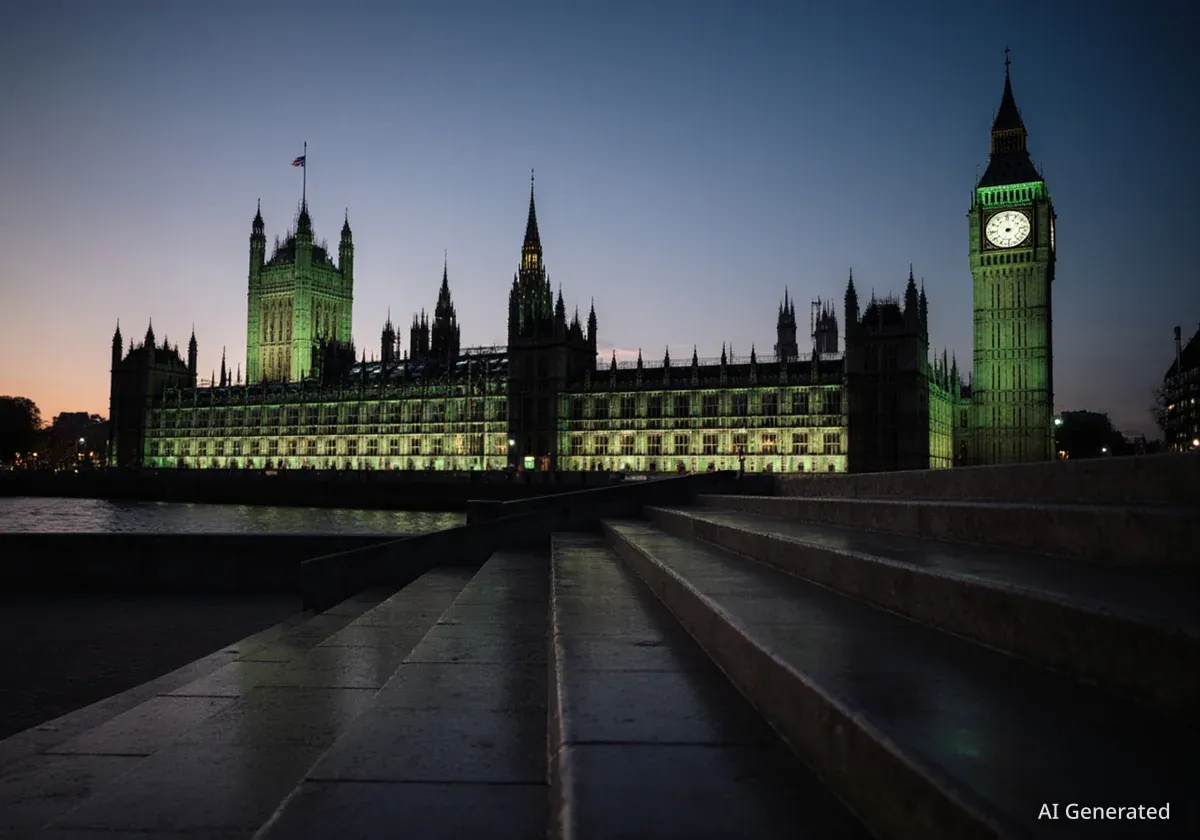The Swiss Federal Council has announced several major policy initiatives, including a new tax on electric vehicles to fund road maintenance and a humanitarian plan to treat injured children from Gaza. These developments follow a recent national vote where citizens approved the abolition of the imputed rental value tax, signaling a dynamic period in Swiss domestic and foreign policy.
Key Takeaways
- The Swiss government plans a new tax on electric vehicles by 2030 to replace declining fuel tax revenue.
- Switzerland will provide medical care for approximately 20 injured children evacuated from the Gaza Strip.
- New, stricter capital requirements for banking giant UBS are moving forward to mitigate financial risks.
- Voters in the canton of Ticino have approved measures to cap health insurance premiums, reflecting a national trend.
Federal Council Proposes New Tax on Electric Vehicles
To address a looming shortfall in road infrastructure funding, the Swiss Federal Council has proposed the introduction of a tax on electric vehicles. The plan aims to ensure that EV owners contribute to the upkeep of the roads they use, similar to how drivers of gasoline and diesel cars currently do through fuel taxes.
As the number of electric vehicles on Swiss roads increases, revenue from traditional fuel levies is steadily declining. The government presented two potential models for the new tax, which is slated for implementation around 2030.
Two Taxation Models Under Consideration
The first model suggests a distance-based charge, where EV owners would pay based on the number of kilometers they drive. The second option involves a tax on electricity consumption used for charging vehicles. Both approaches are designed to create a sustainable funding source for national road infrastructure.
The proposal has received tentative support from key organizations. The Touring Club Switzerland welcomed the plan, while the Swiss Transport and Environment Association agreed in principle. However, the latter group stressed that any new tax must be structured to maintain the financial appeal of EVs over fossil-fuel vehicles to avoid undermining Switzerland's climate objectives.
Constitutional Change Required
Because the new tax requires an amendment to the Swiss constitution, the proposal will first be debated in Parliament. Following parliamentary approval, it will be put to a national referendum, allowing Swiss citizens to have the final say on its implementation.
Switzerland to Provide Medical Aid for Children from Gaza
In a significant humanitarian gesture, Switzerland has committed to accepting and treating approximately 20 seriously injured children from the Gaza Strip. The Federal Department of Justice and Police, which is coordinating the effort, confirmed that the children will be accompanied by caregivers and receive treatment in hospitals across several cantons.
The federal government will bear the full cost of transporting the children to Switzerland. The cantons participating in the program have agreed to cover all associated medical expenses for their treatment.
A Growing Humanitarian Crisis
According to the World Health Organization (WHO), the need for medical evacuations from Gaza is immense. The WHO currently has a list of around 19,000 patients requiring urgent medical evacuation, including approximately 4,000 children with life-threatening injuries or illnesses that cannot be adequately treated locally. Officials believe the actual number of people in need is likely much higher.
The ongoing conflict in the region has created a catastrophic humanitarian situation, overwhelming the local healthcare system. The timeline for the children's arrival in Switzerland remains uncertain and is contingent on securing safe passage out of the conflict zone.
Stricter Capital Requirements for UBS Move Forward
The Federal Council is proceeding with plans to impose stricter capital requirements on UBS, Switzerland's largest bank. The proposed changes to the Banking Act specifically target the bank's foreign subsidiaries, requiring them to hold more capital to absorb potential losses.
This initiative is a direct consequence of the 2023 state-brokered takeover of Credit Suisse by UBS. The merger created a banking institution of such a scale that a future failure could pose an existential threat to the Swiss economy. The new rules aim to minimize the risk of another government bailout.
Despite intensive lobbying efforts from UBS CEO Sergio Ermotti, who argued that the regulations would harm the bank's global competitiveness, the Federal Council has held firm on its proposal. The draft legislation was sent out for consultation, which will continue until early January 2026. Afterward, Parliament will debate the final bill.
Cantons Address Rising Health Insurance Costs
Voters in the canton of Ticino have decisively approved two separate initiatives aimed at reducing the financial burden of health insurance premiums. This local vote reflects a growing nationwide concern over healthcare affordability.
One successful initiative, put forward by the Social Democratic Party (SP), will cap health insurance premiums at 10% of a household's income. The second, from the right-leaning Lega dei Ticinesi party, will allow for higher tax deductions on premium payments.
A Trend Across Switzerland
Ticino is not the first canton to take such action. Similar measures to cap premiums have already been implemented in Geneva, Vaud, and Basel-Stadt. The trend highlights a widespread public sentiment that the rising costs of health insurance are becoming unsustainable for many households.
Further initiatives are currently pending in the cantons of Fribourg, Neuchâtel, Jura, and Valais. At the national level, the SP is preparing two new initiatives: one for income-based premium reductions and another advocating for a single national health insurance fund.
Recent Referendum Results and Political Debates
These policy developments come on the heels of a recent national referendum that saw Swiss voters approve the abolition of the imputed rental value tax. The system taxed homeowners on the theoretical income they could earn from renting out their property. The clear 'yes' vote was seen as a significant victory for homeowners, who represent about 44% of Swiss citizen households.
The campaign in favor of abolition was heavily funded, with a budget of around 7 million Swiss francs, largely from the Homeowners' Association. In contrast, the opposition campaign had approximately 350,000 francs at its disposal.
In other federal business, the National Council recently concluded an 11-hour debate on the Swiss People's Party (SVP) "Sustainability Initiative." The proposal, which sought to cap Switzerland's population at 10 million by 2050, was ultimately rejected by a vote of 121 to 64.




